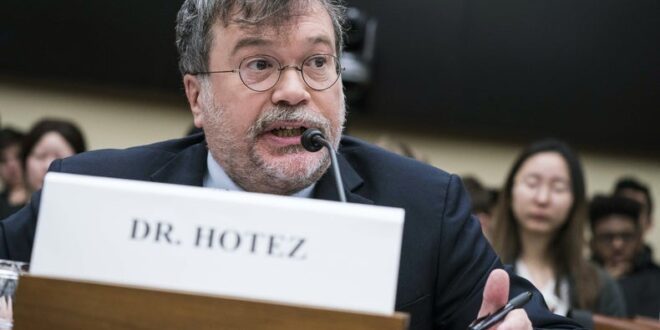The decision to debate debunked antivaccine activists is a terrible idea, historically speaking. When evidence overwhelmingly supports one position while discrediting another, treating them as equals creates a false sense of balance and presents scientifically settled questions as contentious. This deceptive approach only serves to harm the public and undermine the credibility of science.
One of the most harmful mythologies perpetuated by antivaccine activists is the claim that vaccines are linked to autism. This belief gained traction in 1998 when gastroenterologist Andrew Wakefield published a study alleging a connection between the measles-mumps-rubella (MMR) vaccine and autism. Despite the fact that Wakefield’s study was later exposed as fraudulent, the panic it caused led to a significant decrease in vaccine uptake and resulted in unnecessary deaths.
In 2016, I made the mistake of engaging in a debate with Wakefield on an Irish radio station. Despite repeatedly exposing his lies and lack of credibility, Wakefield dismissed me as a part of a pharmaceutical conspiracy. The entire experience was frustrating and ultimately served to amplify his discredited claims rather than showcasing the strength of scientific evidence.
This pattern of false-balance debates is not unique to the antivaccine movement. Cigarette companies, for example, used similar tactics to muddy the scientific consensus on the harmful effects of smoking. By amplifying fringe figures and encouraging debate, they sowed doubt in the minds of the public. These same techniques are now being used by fossil fuel companies to cast doubt on climate change.
For proponents of unevidenced positions, debate is a tool for gaining attention and amplifying their message. Anti-vaccine activists don’t care about winning or losing a debate; they win simply by getting their message out there. Even if they are proven wrong, the public may still be left with a misleading sense of balance between their claims and scientific evidence.
The popular podcaster Joe Rogan, who has a history of promoting fringe science and conspiracy theories, is not qualified to moderate a scientific debate. His platform may have a large following, but it is primarily entertainment and does not prioritize fairness or factual accuracy. Rogan’s show is ill-suited for a productive scientific discussion.
However, it is important to note that acknowledging the limitations and potential harm of bad-faith debates does not equate to a call for censorship. Vaccine scientist Peter Hotez has chosen a more effective approach by engaging in honest and respectful conversations with vaccine-hesitant parents. Instead of engaging in circus-like debates, he has worked to address their fears and concerns through dialogue.
In conclusion, debating debunked antivaccine activists in a false-balance format only serves to debase science and harm the public. It is crucial to recognize the difference between legitimate scientific debates guided by evidence and debates that give a platform to fringe ideas. Engaging in respectful discussions and providing accurate information is a more productive and responsible way to address vaccine hesitancy.
 Mind Uncharted Explore. Discover. Learn.
Mind Uncharted Explore. Discover. Learn.

